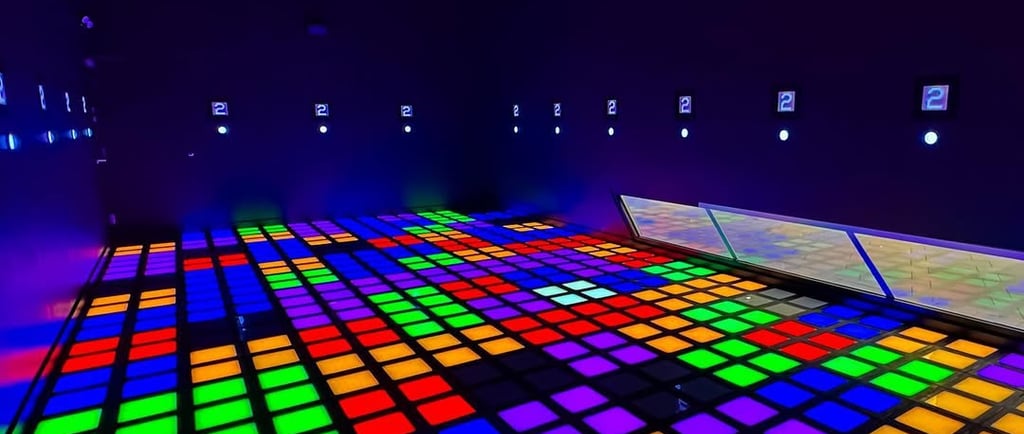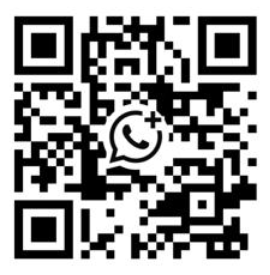What certifications are required for importing Activate Games equipment into the U.S. from China?
Activate Games Project Consultant
9/27/20255 min read


As a business owner or entrepreneur looking to import Activate Games equipment from China, ensuring that your products meet U.S. regulations is a critical step. Navigating the certification maze can be daunting, but it is essential for smooth importation and compliance.
To legally import Activate Games equipment into the U.S. from China, several certifications are required to meet safety, environmental, and communication standards. This includes certifications such as FCC, UL, and CPSIA.
Understanding these certifications is crucial to avoid delays, fines, or even the rejection of your products at U.S. ports. Continue reading to explore what certifications are necessary and how to ensure compliance with U.S. regulations.
How do I make sure my imported games meet U.S. compliance requirements?
Ensuring compliance with U.S. standards starts with understanding the requirements for importing interactive gaming equipment. Certifications like the Children’s Product Certificate (CPC) and Federal Communications Commission (FCC) certification are vital.
If your imported equipment is for children or involves electronic components, compliance with U.S. regulations becomes more complex. You'll need to obtain several certifications to guarantee your product is both safe and legal to sell in the U.S.
Key Certifications for U.S. Compliance
There are several specific certifications you need to check when importing interactive game equipment:
Children's Product Certificate (CPC)
If your game equipment is for children under 12 years old, you will need the Children’s Product Certificate (CPC) from the Consumer Product Safety Commission (CPSC). This certifies that the product complies with U.S. safety standards, including those for toys. If your product falls under the toy category, it will also need third-party testing for safety and chemical content.Federal Communications Commission (FCC)
If your game equipment contains electronic components like wireless controllers, you'll need to ensure it meets the FCC certification. This verifies that your product does not emit harmful levels of electromagnetic interference and complies with U.S. radiofrequency regulations.Energy Conservation Standards (DOE)
If your equipment contains motors or electrical components, it may be subject to energy conservation standards set by the Department of Energy (DOE). You'll need to submit certification reports before distributing in the U.S.Customs Declaration Compliance
It's important to comply with U.S. Customs and Border Protection (CBP) regulations. This includes correctly classifying, valuing, and declaring your products to avoid any issues during importation.
U.S. Import Regulations for Interactive Games
The complexity of ensuring compliance grows depending on the features of your game equipment. For instance, products designed for children will require testing for lead content and overall safety. Electronics must also meet strict electromagnetic compatibility standards set by the FCC. It’s essential to engage with a reliable customs broker who can guide you through the process of securing these certifications.
What U.S. safety standards must Activate Games equipment adhere to?
When importing Activate Games equipment, U.S. safety standards like UL certification and RoHS compliance ensure that your products meet both safety and environmental standards.
U.S. safety standards are designed to ensure that products are safe to use and free from hazards. If you're importing equipment that involves electricity or could potentially cause harm, you need to make sure your equipment adheres to the relevant safety standards.
UL Certification and RoHS Compliance
Two major U.S. safety standards that are essential for your game equipment are:
UL Certification
UL (Underwriters Laboratories) certification is essential for any electrical product. This certification ensures that your equipment meets U.S. electrical safety standards. UL certification helps ensure that the products won't cause electrical shocks, fires, or other hazards. It's often a requirement for products like gaming consoles, controllers, and interactive floors that involve electricity.RoHS Compliance
RoHS (Restriction of Hazardous Substances) compliance is crucial for ensuring that your equipment is free from hazardous materials such as lead, mercury, cadmium, and other dangerous substances. In the U.S., many electronics manufacturers must comply with this regulation to meet environmental standards.FDA Approval
If your interactive game equipment involves direct interaction with consumers and falls under health and safety regulations, it may require FDA approval. This is especially relevant if the equipment uses sensors or other technologies that may have health implications.
Safety Requirements for Interactive Gaming Equipment
Interactive game equipment, especially those using LEDs or electronic sensors, must pass certain electrical safety tests to avoid any fire, shock, or injury hazards. UL certification helps you assure customers that your product is safe to use. RoHS compliance ensures that the product will not cause harm to the environment.
Are there any special certifications for interactive game equipment?
Interactive game equipment has specific safety and environmental requirements, especially regarding electronic components, environmental impact, and energy consumption. Certifications like RoHS and energy conservation standards play a vital role in ensuring your products are both safe and sustainable.
Unlike regular products, interactive game equipment often involves both electrical components and interactive technologies. For these reasons, they are subject to stricter standards for safety, functionality, and environmental responsibility.
Special Certifications for Interactive Equipment
RoHS (Restriction of Hazardous Substances) Compliance
As mentioned earlier, RoHS certification is vital for ensuring that the components used in your interactive gaming equipment are not harmful to the environment. This is particularly important for electrical components like LED lights, wires, and sensors.Energy Star Certification
If your interactive gaming equipment uses a significant amount of electricity, obtaining Energy Star certification may be required. This certification helps demonstrate that the equipment meets energy efficiency guidelines set by the U.S. Department of Energy. Energy-efficient equipment is more appealing to environmentally-conscious consumers.CPSIA Compliance
If your game equipment is intended for children, it must comply with the Consumer Product Safety Improvement Act (CPSIA). This certification ensures that the products are free from harmful chemicals and meet safety standards specifically designed for children’s products.Customs Bond and Importer Security Filing (ISF)
These are essential for importing goods into the U.S. Customs Bond is required to ensure the payment of duties and taxes, while ISF ensures that the U.S. Customs are notified about the details of your products before they are loaded onto a vessel.
Certification Challenges for Interactive Games
The certification process for interactive game equipment can be complex due to the various components involved, such as electronic sensors, LED displays, and motors. You must ensure that each component meets the relevant safety, environmental, and health standards. Working with a reputable supplier who is familiar with these regulations can save you time and avoid costly delays.
How do I verify that my equipment is certified?
Verifying that your equipment is certified involves requesting the necessary documentation and working closely with both your supplier and third-party testing services to ensure compliance with U.S. standards.
Once your equipment has passed the required tests and certifications, it’s crucial to obtain proper documentation from your supplier. This helps you ensure that the equipment meets all regulatory requirements and is ready for importation.
How to Verify Certification
Request Certification Documents
Always ask your supplier for the certification documents for each product. These should include FCC, UL, RoHS, and any other relevant certifications. Make sure they are up-to-date and valid.Third-Party Testing
You can engage third-party testing services to verify the compliance of your products. These companies specialize in testing products against U.S. safety and environmental standards.Check Certification Labels
Many products will have certification labels, such as the UL logo, on the product itself. Ensure that these labels are clearly visible and indicate valid certifications.Verify with Regulatory Agencies
For certain certifications, such as FCC or UL, you can check the agency’s database to confirm the product’s compliance. This can be done through the FCC website or UL’s certification database.
Importance of Verification
Verification is a crucial part of the process to ensure that your equipment will pass inspection at U.S. ports and meet all safety standards. Taking shortcuts in this area can lead to fines, product recalls, or damage to your brand reputation.
Conclusion
In conclusion, importing Activate Games equipment into the U.S. requires several key certifications, including FCC, UL, CPSIA, and RoHS. Ensuring compliance with U.S. safety and environmental standards is essential for smooth importation and customer safety.
Connect
Join us in revolutionizing interactive entertainment.
© 2025. All rights reserved.



